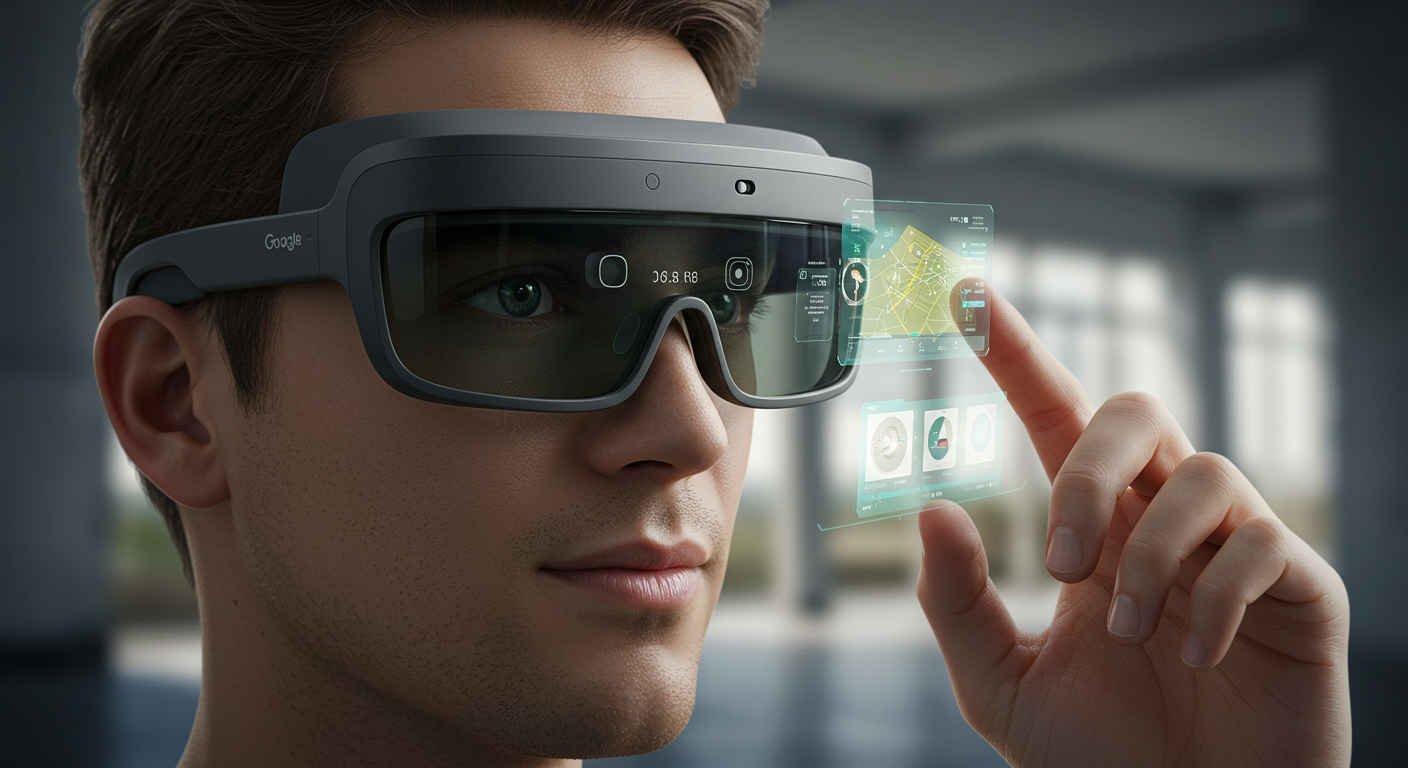XR Smart Glasses: Google’s 2025 Vision Unveiled
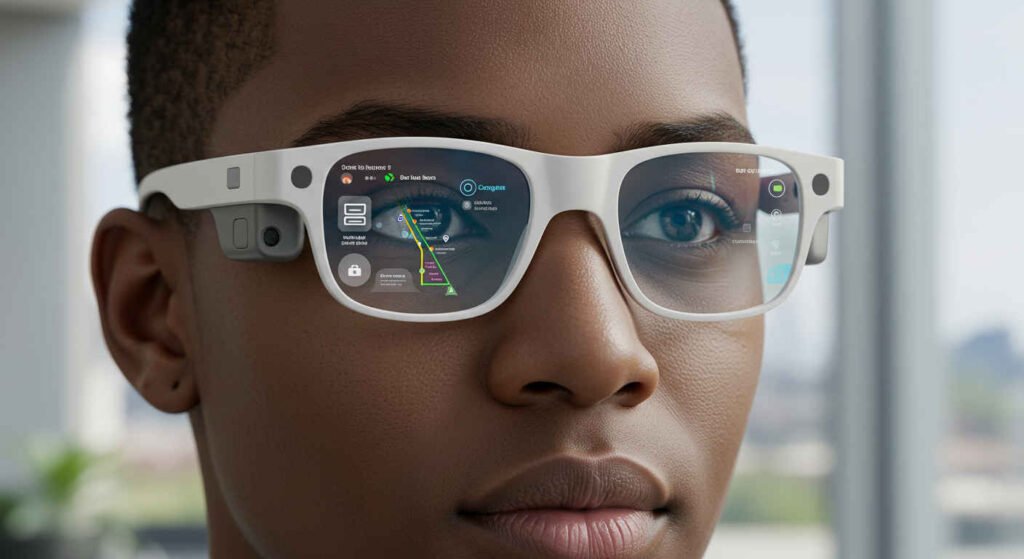
Table of Contents
Holy smokes, folks, strap in for a wild ride into the future! It’s 2025, and Google’s droppin’ a bombshell with their Android XR smart glasses, unveiled like a rock star at TED 2025. These ain’t your grandpa’s specs—they’re like a window to a sci-fi world, blendin’ augmented reality (AR) with artificial intelligence (AI) to make your daily grind feel like a scene from Star Trek. Imagine glasses that whisper translations in your ear, find your lost keys like a bloodhound, and project a Google Maps route right in your field of vision.
What Are XR Smart Glasses, Anyway?
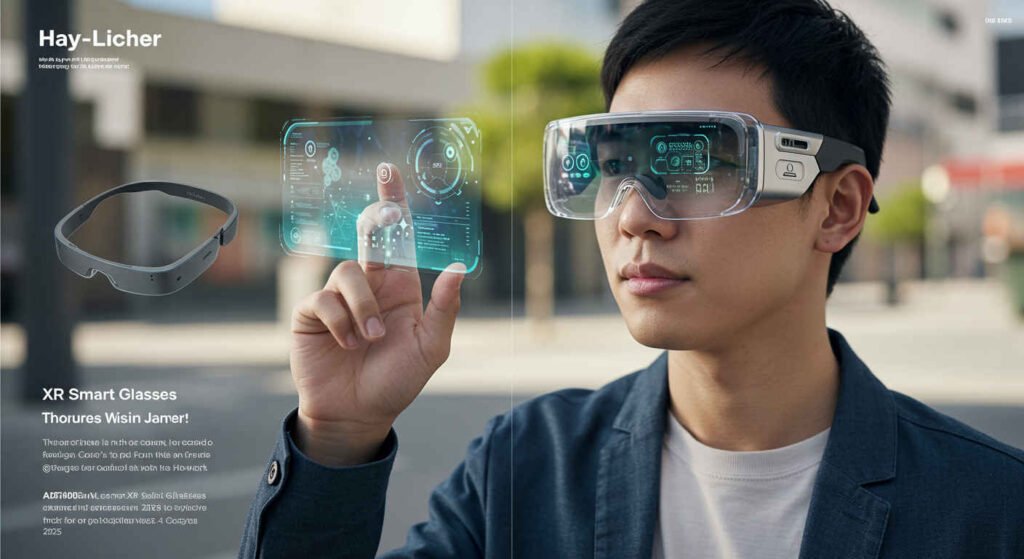
Alright, let’s break it down like a Lego set. XR stands for “extended reality,” a fancy term that’s like an umbrella coverin’ augmented reality (AR), virtual reality (VR), and mixed reality (MR). AR overlays digital info on the real world—like seein’ Pokémon in your backyard—while VR plops you into a full-on digital universe, like battlin’ aliens in a spaceship.
MR’s the lovechild of both, mixin’ real and virtual so you can, say, rearrange virtual furniture in your livin’ room. Google’s XR smart glasses lean hard into AR, usin’ a lightweight frame to project info, apps, and AI smarts right in front of your eyeballs, all powered by their new Android XR platform.
These glasses aren’t just about lookin’ cool (though they’re sleeker than a sports car). They’re packed with cameras, mics, speakers, and a tiny display in the lens, streamin’ data to your phone to keep ‘em light as a feather. The star of the show? Google’s Gemini AI, actin’ like a brainy sidekick that can translate languages on the fly, recognize objects, and even remember where you parked your car.
Google’s Big Reveal at TED 2025
Man, Google didn’t just walk onto the TED 2025 stage in Vancouver—they strutted like they owned the place. Shahram Izadi, Google’s VP of AR and XR, rocked a pair of prototype XR glasses and gave the crowd a front-row seat to the future.
The demo, shared by @bilawalsidhu on X, was like a magic show: Izadi used the glasses to translate Farsi to English in real-time, scan a book’s cover to pull up its deets, and find a lost hotel key card usin’ Gemini’s Memory feature. Nishtha Bhatia, joinin’ him on stage, even got Gemini to whip up a haiku on the spot and read a book title from a shelf she’d barely glanced at. Talk about a mic-drop moment!
The glasses, runnin’ on Android XR, are designed to be your all-day buddy, not some clunky gadget you wear for an hour. They pair with your phone, streamin’ data back and forth so they stay light and comfy, unlike the bulky headsets like Apple’s Vision Pro.
Android Central called the Memory feature “absolutely bananas,” and for good reason—it’s like givin’ your brain a turbo boost. The demo also showed off a heads-up display (HUD) in one lens, flashin’ translations, notes, or Google Maps directions without blockin’ your view. It’s like havin’ a personal hologram that doesn’t scream “I’m a cyborg.”
Google’s not goin’ it alone, either. They’re teamin’ up with Samsung, who’s reportedly buildin’ the hardware for these specs, with a launch slated for 2026, per The Korea Economic Daily. Samsung’s also got their own XR headset, codenamed Project Moohan, hittin’ shelves in 2025, but the glasses are the real crowd-pleaser for daily wear. X posts from @TechSpot on April 20, 2025, hyped the glasses’ multilingual chops and visual memory, callin’ it a peek at “wearable tech’s next frontier.” So, why’s 2025 the year to watch, and what’s Google cookin’ up with these specs?
Why 2025’s the Year for XR Smart Glasses
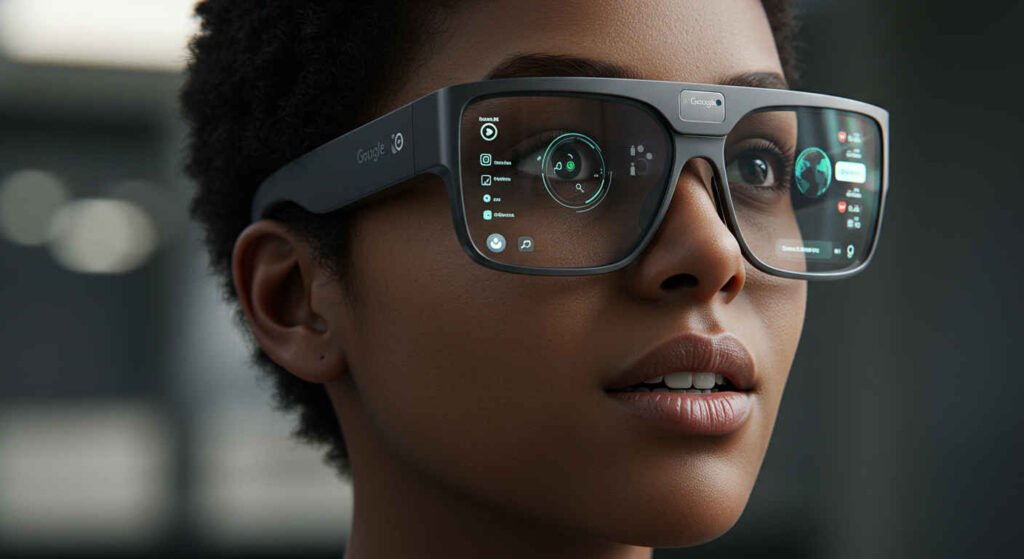
Holy cow, 2025’s like the Wild West for smart glasses, and Google’s ridin’ in with a shiny new sheriff’s badge. For starters, the tech’s finally ready to roll. Android XR, unveiled in December 2024, is a custom OS built for XR devices, tappin’ into Google’s years of AI, AR, and VR know-how. It’s like Android for your phone but souped-up for glasses and headsets, with Gemini AI as the secret sauce. Plus, 5G and cloud computin’ are fast enough to handle the data streamin’ between your phone and glasses, keepin’ ‘em slim and battery-friendly.
The competition’s heatin’ up, too. Meta’s Ray-Ban smart glasses are a hit, but they lack a display, and their Orion AR glasses are still in the lab. Apple’s Vision Pro is a beast, but it’s bulky and costs a fortune—$3,500 ain’t pocket change. Google’s playin’ it smart, aimin’ for lightweight, affordable glasses that vibe with your daily life, not just tech nerds. X posts from @ArInsider on April 21, 2025, praised the glasses’ sleek design and Gemini’s real-time translation, sayin’ they’re “closer to the original Google Glass dream.”
Your love for AI and gadgets (March 2, 2025) fits right in here. These glasses are AI-powered to the max, and they’re tacklin’ your cybersecurity worries, too. With hackers lurkin’ like digital coyotes, Google’s usin’ Gemini to secure data streams, makin’ sure your glasses don’t turn into a spy gadget. And your sustainable tech passion (April 22, 2025)? The lightweight design and phone-pairin’ setup mean less battery waste, makin’ these specs greener than a forest. Let’s unpack how these glasses work and why they’re a big deal.
How Google’s XR Smart Glasses Work
These glasses are like a Swiss Army knife for your face, packed with tech that’s smarter than a fox. Here’s the rundown on what’s under the hood:
1. Android XR: The Brains of the Operation

Android XR is the OS runnin’ the show, built from the ground up for XR devices. It’s like Android’s cooler cousin, optimized for glasses and headsets with a focus on AI and immersive apps. It supports a zillion Android apps from the Play Store, so you can use Google Maps, YouTube Music, or Chrome right on your glasses. Developers are already tinkerin’ with it, usin’ tools like ARCore and Unity to build apps that feel like they’re floatin’ in your world. The TED 2025 demo showed Gemini churnin’ out a haiku and pullin’ up book info, provin’ the OS is ready to rock.
2. Gemini AI: Your Personal Genius
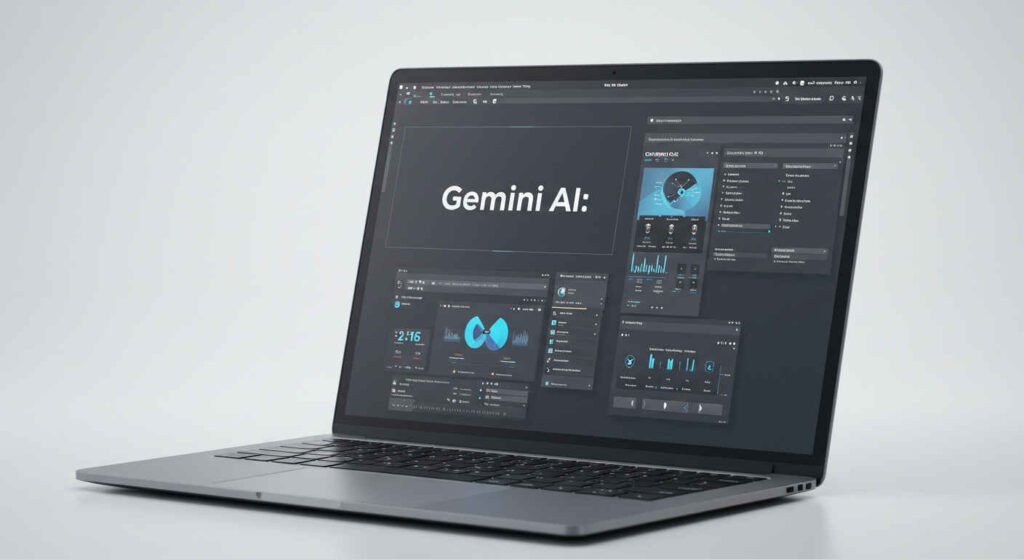
Gemini’s the heart and soul of these glasses, actin’ like a brainy assistant who’s always one tap away. It can:
- Translate in Real-Time: Speak Hindi, get a reply in Hindi, or see Farsi signs flipped to English on the HUD.
- Recognize Objects: Scan a book or album cover, and Gemini pulls up details or plays a song.
- Memory Feature: Remember where you left your keys or what you saw on a shelf, like a digital detective.
- Contextual Help: Ask about a painting, and Gemini spills the beans on its history, like a museum guide in your ear.
X posts from @BISResearch on April 21, 2025, called Gemini’s multimodal AI a “game-changer,” blendin’ vision, voice, and smarts to make the glasses feel alive.
3. Lightweight Design with Phone Pairin’
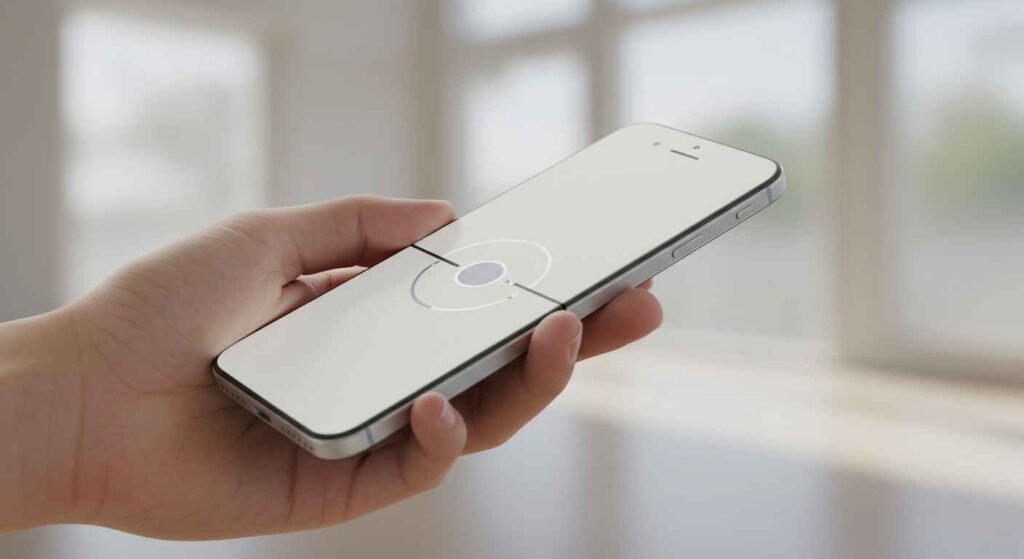
Google’s keepin’ it sleek by offloadin’ heavy liftin’ to your phone. The glasses stream data back and forth, usin’ your phone’s processin’ power to stay light and comfy. They’ve got cameras, a mic, a speaker, and a mini-display in one lens, projectin’ info without blockin’ your view. 9to5Google says the display’s “crisp” for text and graphics, perfect for glanceable info like directions or notifications. The frame’s understated, lookin’ like regular glasses, not a sci-fi prop, which is a big win for wearability.
4. Key Features in Action

The TED 2025 demo was like a tech fireworks show. Here’s what went down:
- Live Translation: Farsi to English, Hindi chats, and sign readin’—all seamless.
- Visual Memory: Gemini recalled a book title Nishtha saw seconds earlier and found a key card on a shelf.
- Navigation: A 3D Google Maps overlay guided the wearer, like a heads-up display in a fighter jet.
- App Integration: Circle to Search, YouTube Music, and note projection showed apps dancin’ in your vision.
CNET called Gemini the “killer app,” sayin’ it’s what makes these glasses feel like a true phone companion.
Why Google’s XR Glasses Are a Big Deal
These glasses aren’t just a shiny toy—they’re like a Swiss Army knife for modern life. Here’s why they’re makin’ waves in 2025:
1. Everyday Superpowers
Forget fumblin’ with your phone for directions or translations. These glasses put info right where you need it, like a personal heads-up display. Lost your keys? Gemini’s Memory feature’s got your back. Need to chat in a foreign language? Real-time translation’s smoother than butter. WIRED says they’re the closest thing to the original Google Glass vision, but way more polished. For your gadget-lovin’ readers (March 2, 2025), this is the kind of tech that makes jaws drop.
2. Battlin’ Cyber Bandits
Your cybersecurity fears (March 2, 2025) about hackers and deepfakes? Google’s got this. The glasses lean on Gemini’s secure AI and encrypted phone connections to keep data locked tight, like a digital Fort Knox. The Hacker News notes AI-driven security tools, like Google’s Unified Security platform, are cuttin’ response times by 50% in 2025, and these glasses tap into that. Link this to your “Cybersecurity Gets AI Boost” post for SEO gold.
3. Green Tech Vibes
Your sustainable tech passion (April 22, 2025) shines here. By offloadin’ processin’ to phones, the glasses use less power and fewer materials than bulky headsets. Plus, their long battery life—thanks to light onboard processin’—means less chargin’ and waste. Forbes says smart wearables like these are pushin’ eco-friendly tech in 2025, and Google’s on the right track.
4. Powerin’ the AI Boom
AI’s eatin’ energy like a kid with a candy stash, and your March 2, 2025, chat showed you’re pumped about AI-tech combos. These glasses use Gemini to handle tasks efficiently, sippin’ power instead of guzzlin’ it. They’re perfect for AI-driven apps, from productivity tools to immersive games, makin’ ‘em a must-have for your Tech Forge Wave audience.
5. Takin’ on the Competition
Google’s not alone in the smart glasses rodeo. Meta’s Ray-Ban glasses are popular but lack a display, and their Orion AR specs are years out. Samsung’s Project Moohan headset is cool but bulky, and Apple’s Vision Pro is a wallet-buster. Google’s glasses hit the sweet spot: affordable, lightweight, and AI-packed. TechRadar’s stoked, sayin’ their only gripe is the 2026 launch delay.
Challenges: It Ain’t All Smooth Sailin’
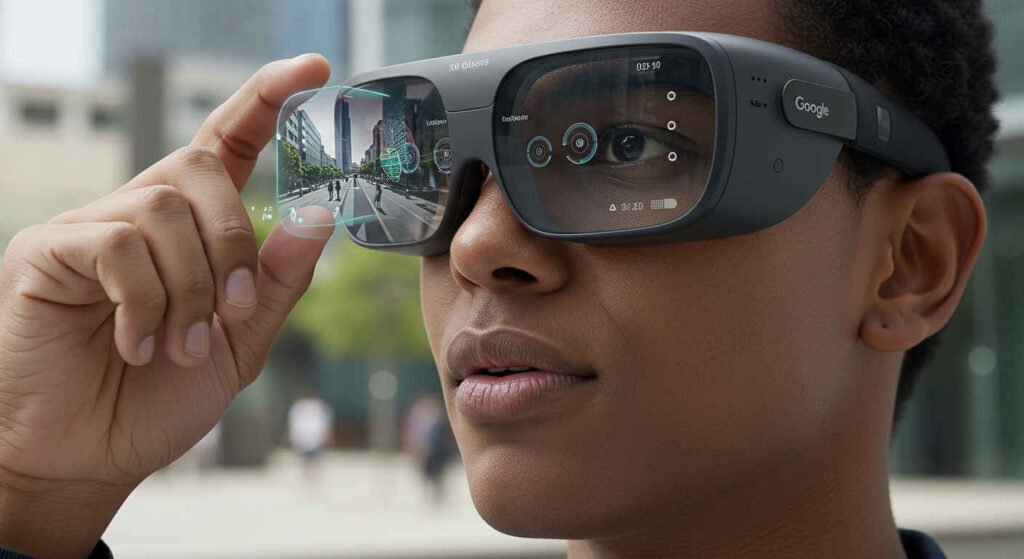
Google’s got a hot ticket, but it’s not like they’re cruisin’ down Easy Street. Here’s what’s throwin’ curveballs in 2025:
1. Privacy Jitters
With cameras and mics recordin’ your every move, folks are gettin’ the heebie-jeebies about Big Brother vibes. Android Central called the Memory feature “creepy” for some, even if it’s handy. Google’s promisin’ privacy-first design, with real-world testin’ to respect bystanders, but they gotta walk the talk.
2. Tech Hurdles
Stuffin’ a display, AI, and sensors into a slim frame is like tryin’ to fit an elephant in a phone booth. WIRED says displays in smart glasses are a “world of pain,” with challenges like battery life and heat management. Google’s phone-pairin’ trick helps, but the prototype’s USB-C ports (per 9to5Google) hint at early-stage quirks.
3. Market Risks
Google’s got a history of axin’ projects—remember Google Glass? A judge’s 2024 rulin’ callin’ Google Search a monopoly ain’t helpin’ their rep, either. If the glasses flop or Samsung’s 2026 launch stumbles, it could be a black eye for Android XR. Plus, Meta’s head start with Ray-Ban glasses means Google’s playin’ catch-up.
4. Cost and Accessibility
No word on price yet, but Meta’s Ray-Ban glasses start at $300, and rumors say their display version could hit $1,000. Google’s aimin’ for affordable, but if they’re too pricey, they’ll be a tough sell. And with prescription lenses and sunglasses in the works, they gotta nail accessibility for all users.
What’s Next for Google’s XR Glasses
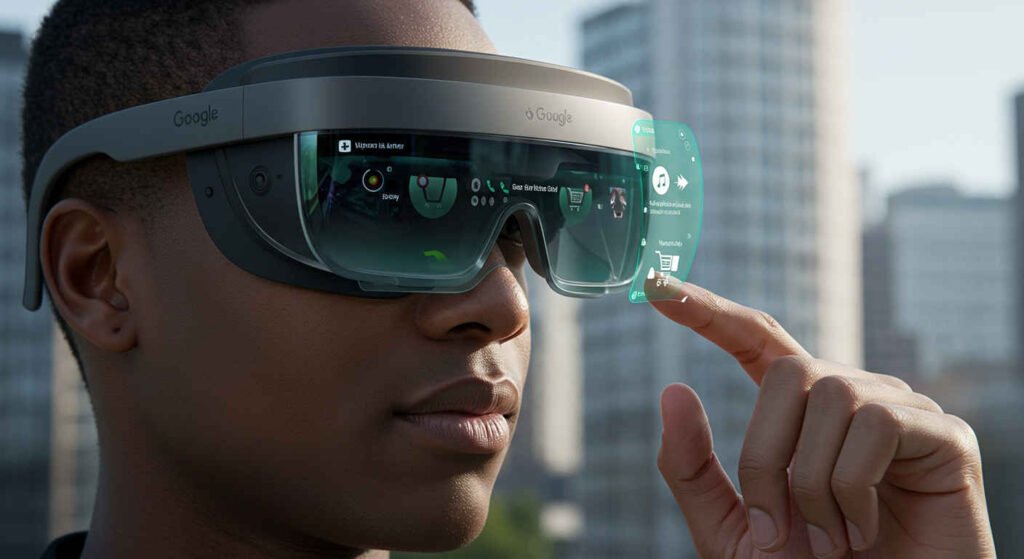
Google’s playin’ the long game, and 2025’s just the start. Samsung’s slated to launch the glasses in 2026, possibly under the codename “Haean,” with final specs still in the works. Features like video recordin’, music playback, and voice callin’ are on the table, maybe with Qualcomm’s Snapdragon XR2 Plus Gen 2 chip for extra oomph. Google’s also testin’ prototypes with a small group to iron out kinks, per their blog.
By 2027, expect more players in the XR game. Meta’s rumored to drop display-equipped Ray-Ban glasses in 2025, and Apple’s cookin’ up lightweight AR specs, per Bloomberg. Google’s edge? Android’s massive developer ecosystem, lettin’ a zillion apps run on XR devices. The Recursive predicts 2025 will see “smarter AI-driven hardware” for XR, and Google’s leadin’ the pack. Your sustainable tech vibe? Future iterations could lean harder into recycled materials and energy-efficient chips, alignin’ with 2025’s green tech push.
Why XR Glasses Are Your 2025 Must-Watch
Google’s XR smart glasses are like a comet blazin’ across 2025’s tech sky—bright, bold, and impossible to ignore. With Gemini AI, a sleek design, and Android XR’s open platform, they’re set to make AR as common as your morning coffee. They’re tacklin’ your cybersecurity worries, vibin’ with your sustainable tech love, and feedin’ your gadget obsession. For your blog, this is a chance to surf a tsunami of reader interest, with posts that spark shares and clicks.
Get started:
- Write: A “Google XR Glasses FAQs” post to explain Gemini and Android XR.
- Share: Post this article on X, taggin’ @BenGeskin and @TechSpot to join the buzz.
- Track: Use SEMrush to monitor this post’s rank for “Google XR smart glasses 2025” and tweak for top spots.
These glasses aren’t just tech—they’re a glimpse of a world where AI and AR make life easier, safer, and greener, like a lighthouse in a tech-crowded sea. Got ideas for more XR content or wanna chat wearable tech? Drop a comment, check our “Tech Trends 2025” posts, or share this on X to keep the convo poppin’. Let’s see the future through Google’s lens, one smart spec at a time!
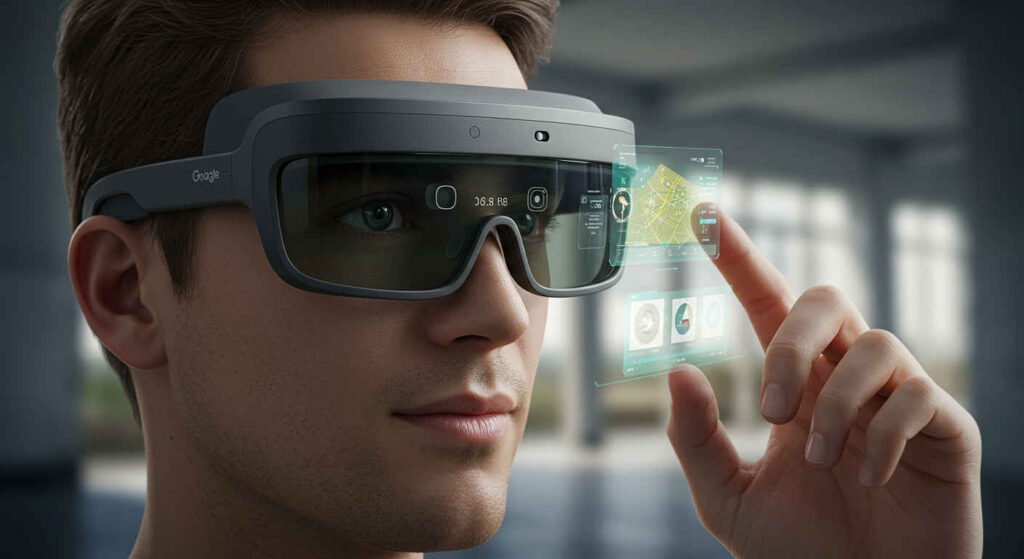
See this good article in our internal links: https://techforgewave.com/smart-cities-boom-ai-drives-urban-future-in-2025/
See this good video on YouTube about Google’s New AI Glasses: https://youtu.be/y8AZ3d7YhPo?si=fqTvF3CvlJnRQfRP


